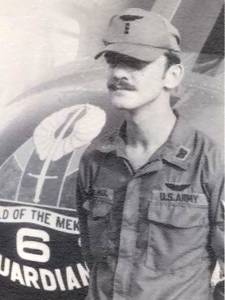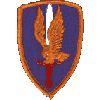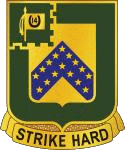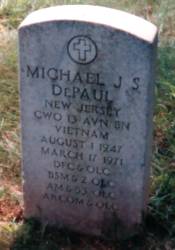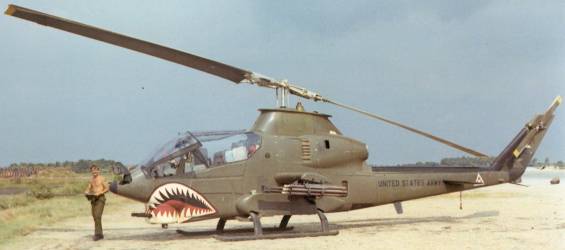A note from The Virtual Wall
On 17 March 1971 an AH-1G COBRA, tail number 67-15676, of C Troop, 16th Cavalry, was conducting a night check flight at Can Tho. An air traffic controller cleared an Air America PC-6 PORTER to a final straight in approach and cleared DePaul base to an autorotation final at the same time. The two aircraft collided in midair and crashed, killing all aboard. While the names of those aboard the PC-6 are not known, the two crewmen of the AH-1G were
- CW2 Michael Joseph S. DePaul, aircraft commander
- CPT Robert Carrell Green, copilot
The following reports of the accident are taken from the
Vietnam Helicopter Pilots' Association database
|
"DARKHORSE 32 (CW2 Michael J. S. DePaul, IP in AH1G 67-15676) had been working in the traffic pattern at Can Tho landing to the east with closed right hand. He was 0.8 hrs (estimated) into the AC check ride with LT Green. The Air America PORTER call sign 93R had called in to Can Tho tower for landing instructions 6 miles west on VHF. The tower stated "93R straight in runway 08 winds 090/15 altimeter 29.83 report 2 mile final". This was acknowledged by 93R. At this point, for clarification sake, it is stated that the AH-1G was transmitting and receiving to the tower on UHF. His VHF was not being utilized. The PORTER has only VHF therefore neither aircraft could hear the other's transmissions although they could hear all the tower transmissions. DARKHORSE 32 (DH32) called on down wind for an autorotation to the active. DH 32 was cleared number 2 for an autorotation on the active. Number 1 in the traffic was an OH-58 just touching down on B Row helipad. DH 32 entered the maneuver on final when the tower saw a fixed wing on final less than a mile from the airfield boundary. The tower asked the fixed wing for his I.D. response was "93R one mile out here." The tower then instructed 93R to slow his approach. Flaps were applied to an intermediate setting (examination of wreckage); airspeed of 70 to 80 knots was then attained (80 knots being maximum flap speed). The COBRA's airspeed at this point in a straight-in autorotation would be 60 to 70 knots indicated. The tower then realized that the two aircraft were dangerously close. DH 32 was instructed to "Go around". Reply was "this is DH". The tower immediately repeated "DH 32 go around", reply "DH 32 on the go". Immediately following that last reply by DH 32, 93R was asked if he saw the COBRA reply "Negative" call immediately repeated "93R do you see the COBRA" reply "Negative going around 93R". The tower then called "93R make a --oh''". Impact occurred at that time. The COBRA fell forward and to the north side of the active, the left skid contacting a seven foot high pile of PSP (remains of the old runway which had been bulldozed into a pile). The COBRA at this point was in a left bank. It then slid forward off the PSP pile and came to rest on its left side. The PORTER after impact with the COBRA rolled to the left to an inverted position nose low and impacted into an empty revetment 50 meters east of the COBRA."
From the Accident Summary
|
|
"Lloyd Newell was the on-duty Air Traffic Controller in Can Tho Tower when the mid-air between Darkhorse 32 and an AA Porter occurred, 17-Mar-71. Newell kept a diary while in Vietnam. From what I was later to learn ... after I got out of the service, there were 7 people killed in the PC-6, the Air America. First off the Porter was on VHF and DH 32 was on UHF. Though both could not hear each other, both could hear all the transmissions from the tower since we broadcasted on FM,VHF and UHF on every transmission sent from the tower. However, I have seen and read a few other accident reports and this problem of different radio freq. was a safety issue problem. I should also point out that at the time of the accident the runway at Can Tho was torn up. As you might remember the runway was metal matting and the taxiways were PSP. Beginning with the western end of the runway the metal runway was removed and blacktop was put down and the rest of the runway remained metal. Once this first section was completed the middle part of the runway was then ripped up to be replaced with blacktop, leaving the eastern part still intact with its metal runway. When this was first told to we controllers, before building began on the runway, we were instructed that we could land aircraft to both the black top part and the metal part of the runway. We told the powers to be that this was setting up an accident to happen, but what did we know, we only worked traffic every day so what did we know. In my mind and in all the other controllers minds this was a factor in the accident along with the different radio freq."
From Lloyd Newell
|
|
"An air traffic controller cleared an Air America fixed wing on final straight in approach and cleared DePaul base to final at the same time. DePaul tried to pull hard left, but blades cut through the Air America fuselage and took off its left wing. All died on impact except DePaul. He tried to chop through the canopy with his survival knife, but smoke and heat from the fire over came him."
From Steve Hill, July 1995
|
|


